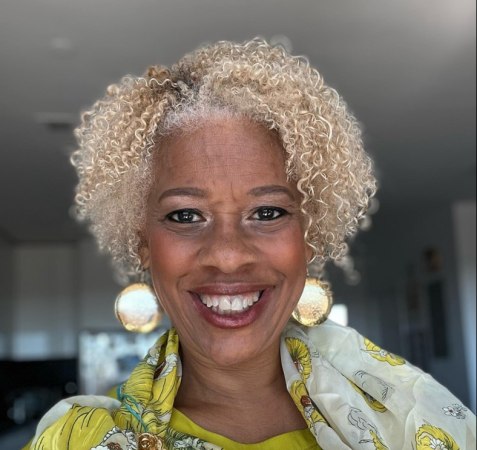President’s Message: My Biennial Pledge, Growing Women Media Leaders

Karibu! Welcome from Tanzania, Zanzibar (and above the Earth as I type) where the International Association of Women in Radio and Television (IAWRT) concluded its 39th biennial and members’ meeting from 18-20 November that ushered in its new board and strategic agenda. Centered around three critical themes of conflict, climate change and COVID-19, delegates from 14 chapters spanning more than 55 countries shared strategies and reports of pressing issues around the globe.
My sincere thanks to our host chapter and chapter head, Fatuma Matulanga, the head of Tanzania Broadcasting Corporation, TZB Zanzibar Office (Unguja and Pemba), Rose Haji Mwalimu, IAWRT Tanzania chapter advisor and the host team and program committee for creating a safe, engaging environment for our deliberations. I will personally be forever grateful for your grace under multiple, unforeseen pressures. I look forward to our continued partnership and growth of the chapter in Tanzania.
The 400-member strong international community of journalists, broadcasters, filmmakers, educators, media researchers and others hail from countries around the globe. Uganda. Kenya. Tanzania. Cameroon. South Africa. Norway. Philippines. United States of America. Cambodia. Moldova. Nepal. India. Iraq. Afghanistan.
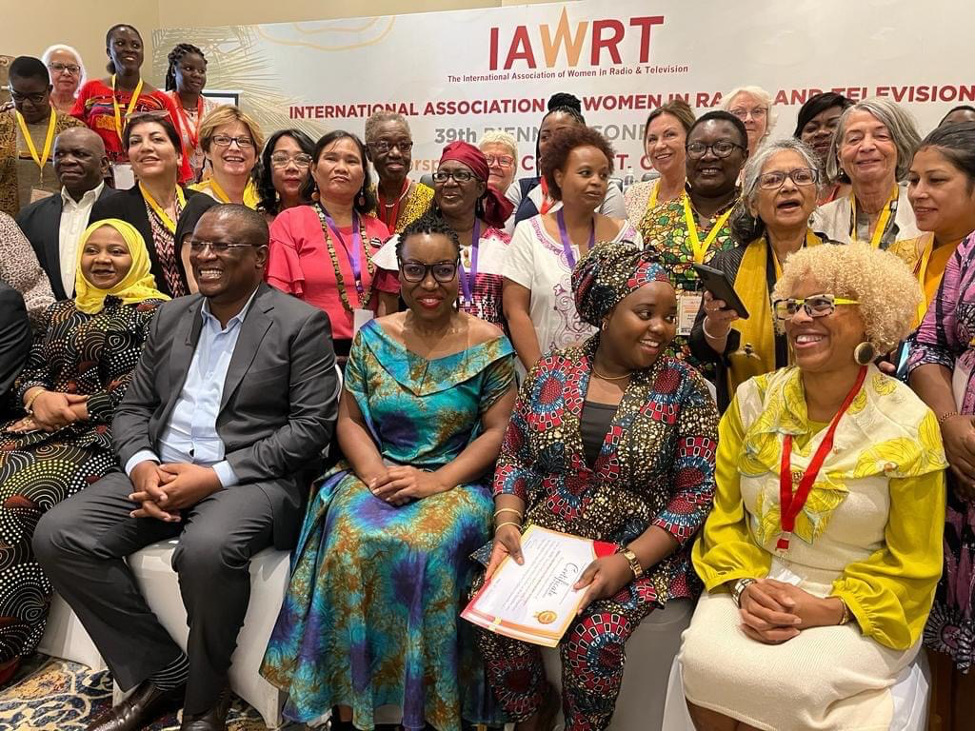
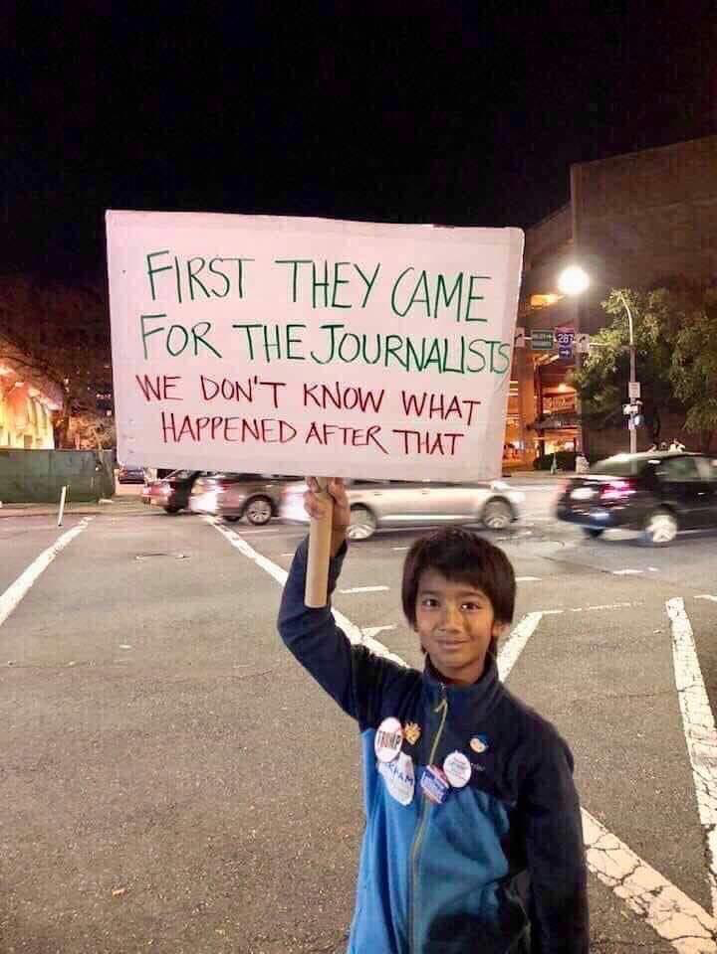
Many of our Afghan chapter members are in exile, run from the airwaves and their country, on the takeover by the Taliban. Journalists and those representing civil society were targeted and the entire media family is kept under tight scrutiny. According to a survey conducted by Reporters without Borders, the working journalists corps has declined from 10,790 people working in Afghan media at the start of August 2021 to 4,360 working journalists by December 2021. For women journalists, the numbers are even more stark. Out of 2,490 women working before the Taliban takeover, only 410 women journalists remain. IAWRT Afghanistan chapter head, Najiba Ayubi, has been instrumental in negotiating with the Taliban to overturn the human rights restrictions, so women journalists can continue to inform, educate and report on their country’s most pressing issues — gender equality, media plurality and human rights. But media freedom remains a dream.
The AWRT-Kabul chapter shared their latest research on the conditions inside Afghanistan in the report Lives, Jobs, Homeland: Afghan Women Journalists Lose All, supported by Internews. Their survey of 308 respondents, all women, details the devastation to the media corps.
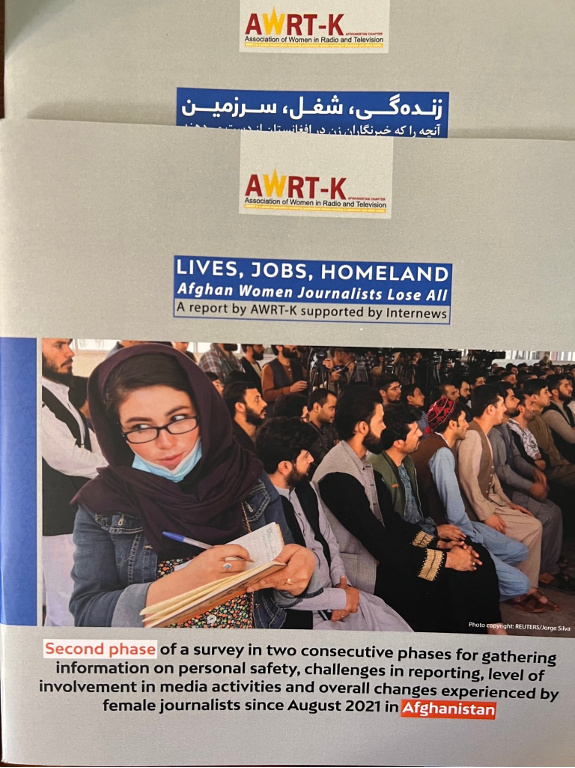
According to the survey, all 100 percent of the respondents reported that they have received some kind of threat since the takeover. The restrictions and threats have been particularly hard for women in provincial media. A majority of respondents (67.86%) reported that they have lost their jobs since the de facto authorities’ takeover of Afghanistan in August 2021, with Bamyan, Kandahar and Balkh areas reporting high job losses and even the complete shutdown of media houses.
“My whole body shakes when I think of that time,” shared one Afghan chapter member, now in hiding with his family. Utilizing intimidation, pressure on extended family, threats, arrests, torture and killings, the Taliban tactics have caused journalists to flee or go underground, staying out of the public eye to protect themselves and their extended families.
Kreshma Fakhri, an Afghan journalist and newly elected IAWRT-International board member, shared her harrowing and dangerous route to refuge. She described the hostile working conditions inside the country.
“The Taliban have set up three red lines. Publishing and broadcasting in accordance with Sharia law, observing the national interest, and limitation of women in media. This has caused fear among the media and has opened the way for self-censorship. Thus, many realities will remain hidden and unwritten.”
Now in exile, she and her colleagues are trying to work again as journalists. But they are out of the country and the situation is dire.
“The end result is a rising tide of violence and lack of resolution for Afghan society. Condemnation is not enough. Sanction the Taliban. The future of Afghanistan is in the hands of women. We must protect them and the future of Afghanistan.”
Our Nicaraguan chapter has left their country, disbanded and scattered about the globe.

Our members in the Philippines have faced continued pressure from authorities who use “redtagging” or blacklisting tactics to target journalists with false arrests, equipment seizures, and loss of jobs. IAWRT member Frenchy Mae Cumpio, has been imprisoned for more than two years on false charges from aiding terrorism to “fake news.” Our own secretariat and communications officer, Lady Ann Salem, remains on the run, evading authorities by moving to various safe houses.
The Philippines courts recently acquitted journalists, including IAWRT Philippines members Crimson Labinghisa and Krisma Nina Porquia, who were arrested, jailed and charged when they were covering a protest during the pandemic in May 2020. Using statements of support and other public pressures, the Philippines chapter has been using International Women’s Day and other activities to focus on the unique needs of women and bringing gender equality — with safety — to their communities.
Our members have faced two very challenging years, led by our outgoing President Violet Gonda, exiled from Zimbabwe for 20 years and now working for Reuters in the UK. Serving for 10 years on IAWRT’s international board, she helped members and chapters navigate Taliban takeovers and political extremists, massive layoffs in the media around the globe, a global health crisis, the precarious financial state of journalists, the migration and brain drain from repressive countries and an internet weaponized to sow mis/disinformation, Violet and our outgoing board members have navigated these perilous times with care and grace. Key to our survival has been our collective might as a distributed, diverse professional network. Our members have provided training in digital and physical safety, self care, legal aid and coaching, and professional development. The power and resilience of this global network allows us to be responsive in crisis, to share resources, share skills and even share our homes. Our primary mission as an international organization is to support our members to keep telling the stories of their communities during these multiple threats to press freedom, individual freedom of expression and continued violations of human rights.
Unity is our superpower.
I am Dr. Michelle Ferrier, your new president. I humbly accepted this role to serve IAWRT members and chapters in building a more inclusive, diverse and resilient network that helps build a vibrant, independent media sector across the globe, with care to our individual members who must live and do their work in difficult conditions.
Over the past 10 years, my work has been at the highest of global forums, advocating for the safety of women journalists by bringing media and technological research, awareness and actions to our world leaders. As founder of TrollBusters, we have been educating journalists on digital security, online threats, and strategies in workflow and personal protections. Our website, at www.troll-busters.com, is a rich resource of data and knowledge about global conditions on press freedoms, providing a dynamic view of an ever-changing global “triple pandemic” of COVID, climate change and conflict. And as an educator, I have been training emerging journalists all over the world in new ways of doing our work, creating new curricula and research and advocating for journalists’ safety. The award-winning Toxic Avenger magazine, produced by TrollBusters, publishes at the intersection of digital harms and the lives and work of journalists. Our regional analysis of press freedoms and amplification of specific cases, tactics and support helps amplify already existing projects and strategies that can be replicated elsewhere. I’ve been working directly with journalists, both men and women, to help secure their data, stories and their lives in geographies across the Earth, advocating for better education and training on the hostile digital and physical environments in which we now find ourselves doing this work.
In my research, monitoring and service work, I’ve seen unprecedented attacks on journalists by state-sponsored, state-aligned actors, online coordinated social campaigns to discredit journalists and destroy the credibility of journalistic work. I’ve seen social spaces weaponized to shame, name and harass journalists and women, sometimes to deadly effect. Our Iraq chapter shared a sobering report of “honor killings” where private information and culturally provocative images are weaponized, resulting in family killing family, fathers killing daughters, brothers killing sisters who they assumed brought shame to their families. This is a strategy, especially targeting women journalists, to break networks down to the family core – to sow confusion, fear, and doubt.
And sometimes — as with our sisters in Iraq — with deadly consequences.
The effects of these actions ripple across our global network. And they threaten the resilience and growth of our network, which is our greatest strength. These times call for collective action of passionate voices. As journalists, we must continue to speak to these atrocities on human rights and press freedoms and create spaces within our communities and countries for dialogue — and healing — on the most pressing issues of our times.
I am honored and humbled to work over the next two years with our newly elected board, many of them returning to the board from prior positions within the international board:
- Vice President, Jola Diones-Mamagun.
- Secretary, Mandira Raut.
- Treasurer, Josephine Karani.
- And our board members: Kreshma Fakhri, Anjali Monteiro, and Razia Quallatein Mwawanga.
Together — with intention and urgency — we will help weave together a powerful network of members and chapter leadership leading the charge on assessing their local conditions and collaborating to develop strategies to support and mentor each other. Through our rich, diverse, network of sisters and allies in journalism, we can continue to create journalism that matters that sustains us and our communities.
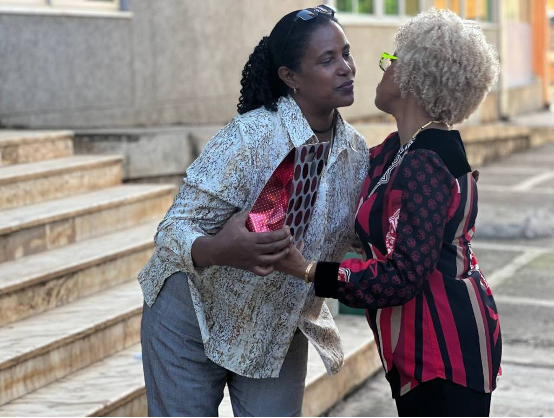
Prior to our biennial, I was in Addis Ababa in Ethiopia with Sheila Dallas-Katzman, president of IAWRT-USA, to inaugurate a training program in media innovation and entrepreneurship. We met with local leaders in state-operated media and independent journalists, media workers and others to reimagine a more equitable, inclusive news and information ecosystem across Ethiopia. The six-month accelerator program is designed to introduce new communication enterprises to reach underserved and underrepresented audiences. Led by our own member, Rebecca Tadesse Hunde of Addis Ababa, we are strengthening the IAWRT network and building a new local chapter. We were introduced to independent media producers, our partners at Amhara Media Corporation, and powerful women and men who are passionate about building an independent and resilient media community. Several followed our conference proceedings on our Facebook live, streaming links and I have acquired quite a following of Ethiopian sisters — and brothers and allies— interested in media change. More than 20-plus journalists, bloggers and broadcasters have reached out since then, eager to join a community of like-minded professionals.
One sister emailed me her thoughts during the three-day event.
“Hello Michelle,
The conference was important, especially when it comes to the trials of female journalists, which teaches a lot about the experiences of the rest of the countries.”
What these journalists crave is connection, to not stay isolated in fear of one another, but to join together in building a mutual aid network in Ethiopia. I am pleased that one woman journalist has opened her home to her colleagues for a traditional coffee, starting the process of connecting on a personal level and rebuilding trust.
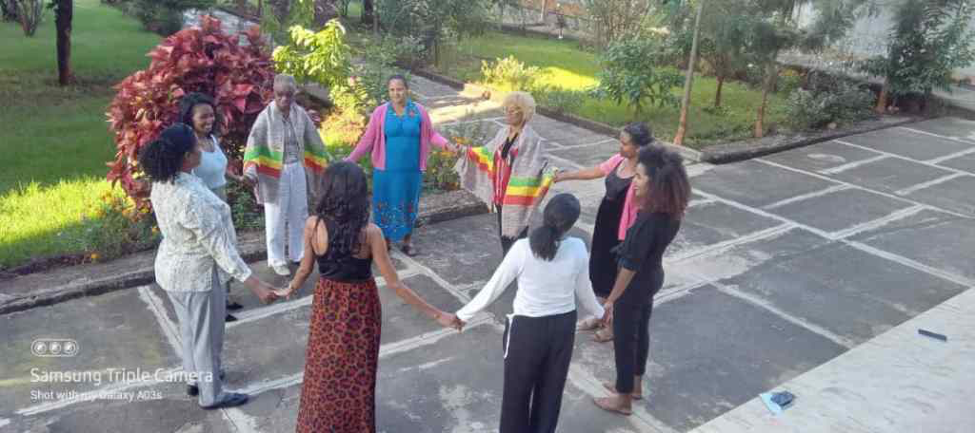
Headed by Sheila Dallas-Katzman a former United Nations communications officer, the USA chapter holds a consultative status with the United Nations Commission on the Status of Women. The 2023 priority theme, “Innovation and technological change, and education in the digital age for achieving gender equality and the empowerment of all women and girls” dovetails with the work we will be doing in Ethiopia on media innovation and entrepreneurship and provides strategic direction to our work moving forward. During international forums from the UN to UNESCO and beyond, IAWRT members have represented the organization on a global stage, most recently during our own biennial. Pamela Morgan of the USA chapter represented us before the UN Climate Change Conference with an introduction to IAWRT-USA’s My Climate Change Story cellphone cinema project, sharing the power of visual personal narratives to effect global change. The India chapter also tackled the issue of climate change in mentoring and long documentary productions. Reena Mohan and the chapter produced the 18th year of the Asia Women’s Film Festival, utilizing the theme “I’m Living It” to share personal stories of climate change impacts.
We welcomed the formation of a new chapter in Sierra Leone on 19 October 2022, headed by Cynthia Anthony, a journalist and gardener, who gave away excess produce from her farm to feed her community during the pandemic. Other journalists and community members in Sierra Leone — leaders, farmers, and women advocates along with Anthony— had participated in the My Climate Change workshop to train the trainers and community members to create and share stories of local conditions and share strategies for resilience. Powerful, direct interventions like the My Climate Change Story not only enrich local policy, but help strengthen the resilience of the whole community. And it is through these enrichment activities that bring value to local residents that we strengthen the whole IAWRT network by creating new chapters and partnerships with local civil society and other community stakeholders.
Our Cameroon chapter, headed by Becky Bissong, developed an online campaign during the 16 Days of Action on Gender-Based Violence, using WhatsApp, email and targeted seminars to strengthen their local network. Our Cameroon members describe the perilous lives of Cameroon journalists in this way:
“If you’re a journalist in Cameroon, you’re caught between the devil and the deep blue sea.”
Recognizing the isolation and silencing that comes from sustained online and offline violence and harassment, Cameroon seeks to elevate these stories to make the world take notice.
In the Philippines, headed by Lynda Catinging-Garcia, the IAWRT chapter initiated a digital safe house — a repository of country and context-rich supports to help women journalists navigate perilous times, build their skills and resilience. This localized model is being replicated in Moldova, as our chapter and journalists struggle to manage the ripple effects of the conflict in neighboring Ukraine. The project provides direct support at the local level by bringing local expertise, context and safety in both digital and physical spaces.
During the past two years, many chapters focused their work around the themes of self-care: mental health and wellbeing, stress management and tactics to deal with online harassment or harassment in the workplace. Building on these local initiatives, our goal as the international board is to nurture these efforts across the globe, learning and sharing our strategies. That is our charge from you, the members, to help you develop the strength to grow.
Our work ahead does not come without its challenges. Managing a distributed network of committed journalists requires that we support the individual members as we nurture the whole. In the strategic plan developed by the outgoing board in partnership with working groups, the 2020-2024 document outlines the key areas of our interventions:
- Advocacy for women’s rights
- Women journalist empowerment and the development of gender parity in the media
- Deepening professional skills in documentary and film production
- Expanding our global reach
- Developing strategic and fiscal strategies to sustain our organization
To effect change in these spaces, IAWRT International must deepen our understanding of local context. We exist to facilitate and amplify the excellent work of our media colleagues around the globe. Our challenges lie in strengthening our network, building in multicultural contexts to our work, rebuilding communication channels to ensure all of our chapters and members are heard and seen and the work amplified. IAWRT’s capacity to mobilize this rich network, especially in times of crisis, has been shown to be our greatest strength.
Global solidarity is our superpower.
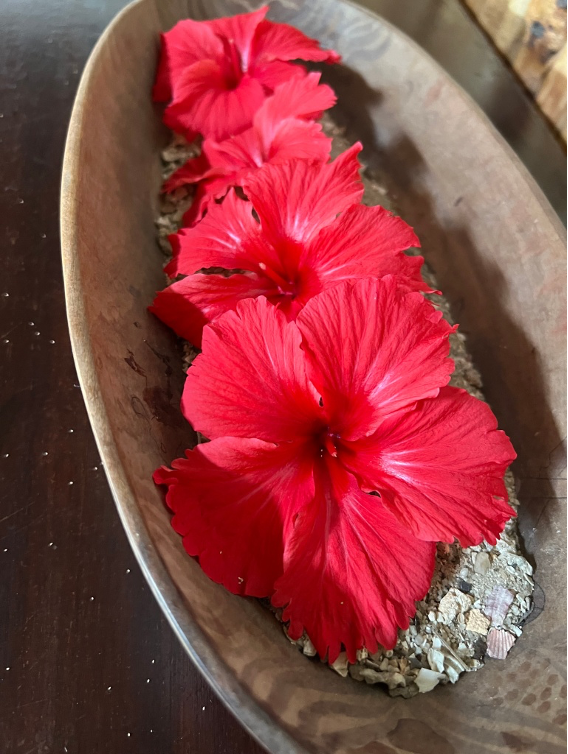
Chapters are collaborating with each other on programs and professional development. Members help members to navigate hostile work and living environments through financial, psychosocial and professional development. Even, sometimes, sharing the clothes off our backs or a safe bed in which to rest and recover.
A powerful example of the impact of IAWRT members: Newly elected board member Raziah Quallatein Mwawanga, a veteran broadcaster and media consultant, was a pioneer of the Tanzania media stakeholders Coalition of the Right to Information which successfully advocated for the enactment of the Media Services Act and the Access to Information Act of 2016. At our biennial, Minister of Information and Communication Technology the Honorable Nape Nnauye welcomed IAWRT delegates at the opening, sharing welcome news that a review of the 2016 Media Services Act is underway. Under the first-ever woman president in the history of Tanzania, Her Excellency Samia Suluhu Hassan, The President of the United Republic of Tanzania, the country has set an ambitious agenda to bring gender equality to the country.
the review is designed to encode gender parity into the law with a goal of 50/50. Zanzibar’s Minister of Information Tabia Maulid Mwita shared that Zanzibar is currently reviewing its information policy to accommodate more liberal media reforms. What a powerful example of the diligent work of committed people to effect systems change! And a strategy that we, in our unique position, can replicate across the globe.
The Minister of Information of Tanzania explained the new changes under Her Excellency’s leadership:
“You’ve seen the initiatives to promote women in leadership including women journalists in different positions, from ministers, prominent secretaries, regional commissioners, district commissioners and directors. It is my hope that his noble initiative of ensuring gender equality, penetrates in your media houses and encourages women around the world to fully participate in this noble profession which is among the most important pillars of good governance.”
Liberation
Education
Elevation
This is what it means to be of support to one another. This is what it takes to build a community of committed leaders. We ARE the community weavers, helping to bring the richness of our own communities, together with our skills, to heal and grow the world.
American cultural anthropologist Margaret Mead is quoted as saying:
“Never doubt that a small group of thoughtful, committed citizens can change the world: indeed, it’s the only thing that ever has.”
I wholeheartedly agree. We must grow local women media leaders, owners, innovators and connectors, because it is through our listening, collaborating, creating and growing with, by, and for our communities that we can effect real healing and change in our world.
Yours in service,
Dr. Michelle Ferrier

